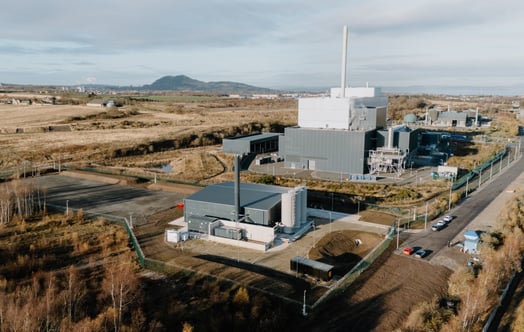
The 2020 Budget announcement brings welcome funding commitments and other announcements on low carbon heat.
There is a lot to digest about the 2020 Budget – from the Coronavirus support package to the pledges to support business big and small by borrowing to invest. It would be easy to overlook the measures taken to support the energy industry in its action against climate change, including the freezing of climate change levy on electricity and raising it on gas from 2022, signalling a policy shift away from fossil fuels.
Also somewhat buried in the detail were some very welcome funding commitments and other announcements on low carbon heat. Vattenfall was pleased to see, for instance, the introduction of a levy on gas suppliers to support green gas injection to the grid – a measure intended to accelerate the decarbonisation of the gas supply and another strong signal of intent on decarbonisation. The cost of this will be passed on to customers in the form of gas bill payers. Although relatively small; around £1 a year on the average household energy bill rising to around £5 by 2025, it begins to erode the relative costs as between gas heating and decarbonised heat, which Vattenfall has long identified as a barrier to heat network uptake.
And if we were left in any doubt about the Government’s commitment to use financial and policy measures to phase out fossil fuels, we could look to the £270m in total for a Green Heat Network Fund for further evidence. Vattenfall has been urging government to provide sight of funding beyond the current Heat Network Investment Partnership (HNIP) scheme to provide continuity and clarity to underpin investment decisions. The new fund will run from 2022 to 2025, and it is our understanding that it will be designed to ensure that heat networks adopt the most cost-effective low carbon heat sources to avoid locking in gas generation in the sector. Once again, a clear policy signal on decarbonisation and one we warmly welcome.
As indeed is the £100 million of exchequer funding in total for 2022/23 and 2023/24 for grant-funding for households and small non-domestic buildings, to install heat pumps (or biomass in limited circumstances) to replace fossil fuel heating, which we are told will form part of government action to help build supply chains ahead of future measures to phase out high-carbon heating. We accept the need for a range of technologies to be supported from a heat carbonisation perspective. Whilst this is a positive step it does beg the question of ‘why not sooner?’ given the declaration of a climate emergency. 2022/23 is a long way away when the climate emergency is now.
Ahead of these schemes being established, the Budget announcement also confirmed that the Government will extend the Domestic Renewable Heat Incentive for one a year up to 2022, maintaining support for heat pumps, biomass and solar thermal; and introducing a third allocation of Tariff Guarantees under the Non-domestic RHI. At last some clarity on what’s happening on RHI. However, the extension is a very short one, leaving the longer term unclear. We anticipate (and hope) that this will be addressed with the imminent publication by BEIS of further details on the future of the RHI schemes.
One other fundamental outstanding question for the industry is how all of the above will fit into a longer term energy strategy and zero carbon delivery plan or pathway. It is to be hoped that this will begin to become clearer when the much anticipated Energy White Paper is published later this year.



